QuestionHello Nicole,
I have a 25 gal Tank, I have 4 platys 3 Mollies and one, well not sure what it is, it has tentacles or whiskers, looks like a cat fish.Anyways, we had just gotten our fish, the catfish one turned out to have ich, real bad too. so i have been treating him, problem is, i also had to take one molly out of the main tank and place her in a breeding net, because another one of my mollies was attacking her to the point she couldnt swim. To get to the point, I woke up this morning and my molly in the breeding net had given birth, there are nearly 40 baby fry in there. Will the Ich treatment harm them? I have another tank, a ten gal , but no heater to put in it. So not sure what I should do. Any advice would be apreciated. Thank you in advance.
AnswerGood afternoon Alyx, thank you for your question.
Tentacles...that just made my day! :)
It does indeed sound as though you have a catfish. Unfortunately, catfish don't "like" salt, and scaleless catfish are sensitive to ich medications. The only fishes more sensitive would be new fry, I am sorry to say.
Ich is highly contagious, unfortunately. That means that if your platies and mollies are not already showing symptoms, you can bet that they will. The cysts on your fish will drop, everything will appear to be fine and dandy, but what is really happening is that the protozoa responsible for ich are multiplying like crazy in between your gravel.
You need to treat the main tank ASAP. A combination of heat and salt would not bother your mollies and platies, I could outline that form of treatment for you. You would need to separate the catfish from the others and treat in a different way, with half-doses of standard ich medication or full doses of medication made just for scaleless fish.
The only problem is that your mollies and platies will more than likely consume some of the fry if they are left in the main tank. Certainly in nature, this happens. It may not be such a bad thing after all - do you really have room for 40 more mollies? You can add more temporary cover in the form of ceramic cups stacked in the corners, plastic plants and the like, to ensure they have sufficient hiding places so that at least a few surive. This is what I would do:
Vacuum the gravel deeply, all the way to the bottom, and effect a 50% water change, remembering to condition the new water with a dechlorinator such as Prime. This in itself will drastically reduce the protozoan population.
Now s-l-o-w-l-y raise the temperature in the main tank, about 2 degrees per hour, to 86 degrees. Vigorous aeration must be employed...it's a sad sight to see your fish gasping for air, but that's just what will happen if you don't have a powerhead at surface level and/or an airstone pumping 24/7 during this period of elevated temperature. If, even with aeration, your fish display this behavior, effect a water change with slightly cooler water and stop at 84 degrees, this is the bare minimum. Keep the lights out during this treatment period and block out ambient light with paper, if it's intense where they are. This helps keep the fish calm.
Again, s-l-o-w-l-y pour a briny solution into the tank over a period of two days. A concentration of 1 tablespoon per 2.5 gallons is what you want to end up with in your tank. You can add 1 tablespoon to a 2.5 gallon jug of water (the kind with a spigot) and let it pour slowly into the tank, repeating the process the next day. Or, you can effect 5x one gallon water changes with 2 tablespoons of salt in each gallon bottle of new water, which will work out to just about the right concentration.
Treat the catfish in the quarantine tank with half doses of Kordon's Quick Cure, following the recommended schedule, or use Jungle's Ick Guard II and follow their dosing recommendations. The latter is formulated especially for scaleless fish such as catfish. If the temperature fluctuates wildly in your home, I would invest in a cheap 50 watt heater, Walmart makes one. If your house temperature does not drop or fluctuate below 72-74 degrees, I wouldn't worry, although a heater is always useful to have on hand.
I hope that helps! Check out wetwebmedia.com for extensive Q&As about treating freshwater ich, and use freshaquarium.about.com as a reference source. Both sites are searchable, and have advice for all levels of expertise.
Good luck kicking the ich,
Nicole

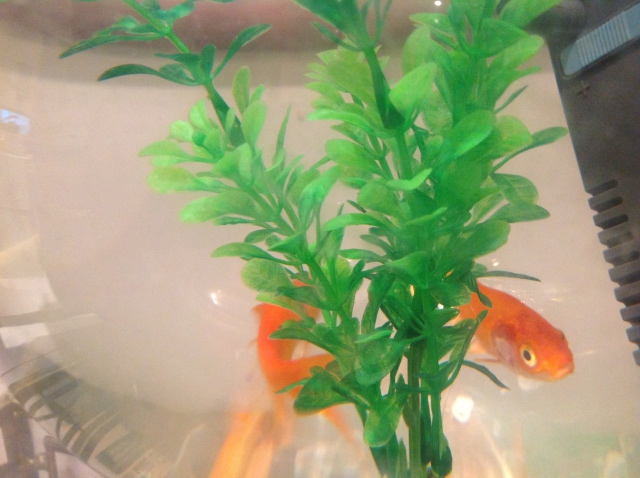 Gold fish
QuestionQUESTION: hi!
I am keeping gold fish for last m
Gold fish
QuestionQUESTION: hi!
I am keeping gold fish for last m
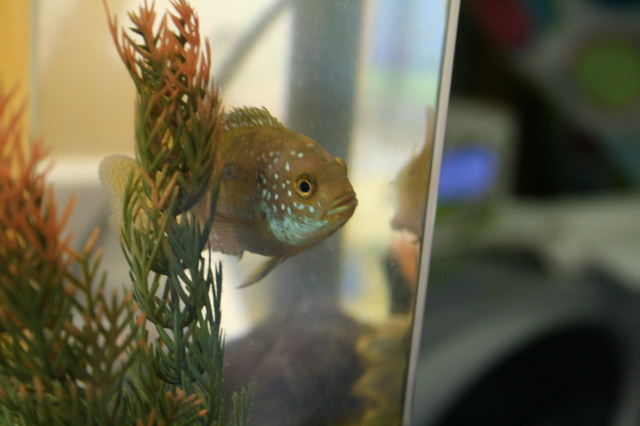 Jack Dempsey?
Question
Jack Dempsey
I have a fish that I bought over
Jack Dempsey?
Question
Jack Dempsey
I have a fish that I bought over
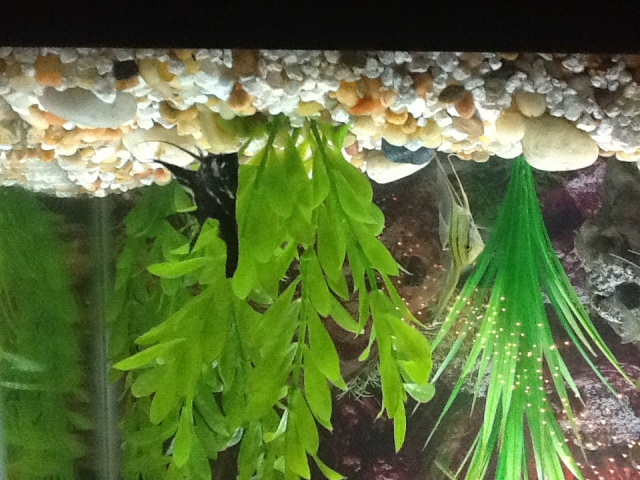 Angels ganging up on pleco
QuestionAngels
QUESTION: I have a 45 gallon tan
Angels ganging up on pleco
QuestionAngels
QUESTION: I have a 45 gallon tan
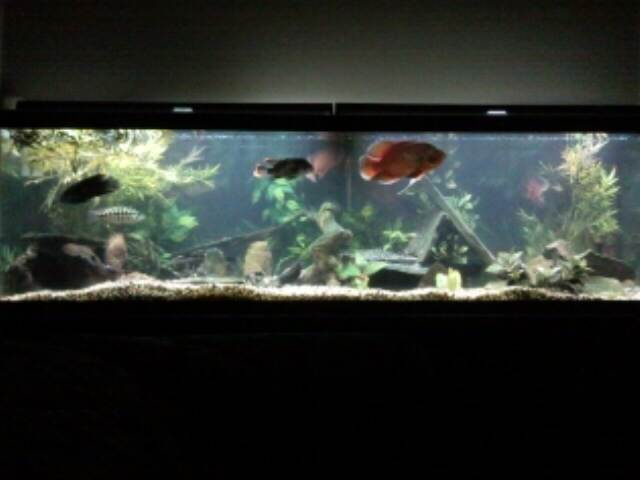 Another New-Age Cichlid Question
QuestionMy 125-gallon New Worl
QUESTION: Profess
Another New-Age Cichlid Question
QuestionMy 125-gallon New Worl
QUESTION: Profess
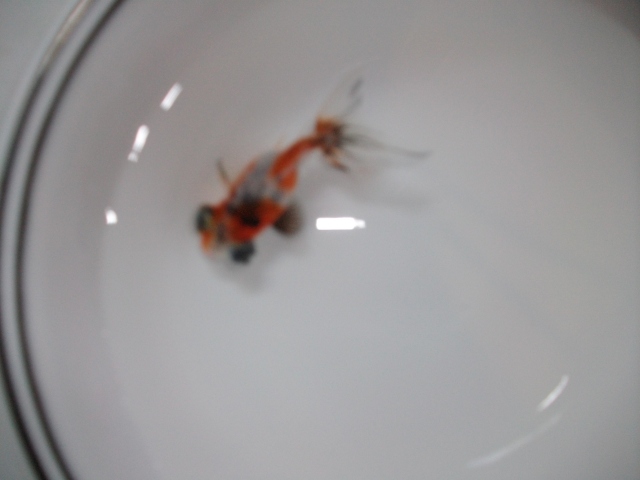 Missing Fin
Question
Herald
My Goldfish recently lost its right pec
Missing Fin
Question
Herald
My Goldfish recently lost its right pec